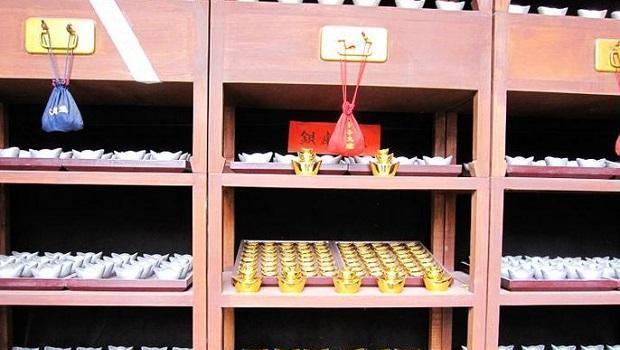Nowadays, mobile payment, which has been fully popularized in the mainland, has changed people's lives to a large extent, modern people rarely carry cash with them, payment has become very convenient, and almost all transactions can be completed with a mobile phone. Even convenient mobile payment has caused a large number of thieves to "lose their jobs" to a certain extent. Unlike today's convenient and fast mobile payments, in ancient times, the earliest form of trade was to complete the transaction by bartering, exchanging items of equal or similar value. Although it is possible to complete transactions by barter, this method is undoubtedly extremely inconvenient and has great limitations. With the development of society, special items that could represent general equivalents appeared later - money.

The emergence of money has epoch-making significance for the development of human economic trade, and transactions between people have become more convenient. In ancient times, the raw materials of money were generally 3 kinds, namely gold, silver, and copper. The value represented by these three is also determined by their respective rarity, and the highest value is undoubtedly gold, followed by silver, and finally copper. However, although the use of metal as currency has greatly changed people's trade methods and the history of use has exceeded thousands of years, the weight of metal and its easy wear characteristics still make it a great inconvenience in actual use, far from being called "perfect" currency. By the time of the Song Dynasty, the world's earliest paper money appeared on the mainland- Jiaozi.
However, due to the lack of anti-counterfeiting awareness and technical means at that time, coupled with the lack of moderation in government issuance, the value of the handover could not be guaranteed, and it gradually withdrew from the historical stage. In the middle and late Ming Dynasty, a large amount of silver poured into the mainland, and it was also at this time that the real sense of silver tickets appeared. It's just that most of these silver tickets appear in some specific transactions, or are held by some high-ranking officials and nobles, and they have not really become popular. By the time silver tickets really became popular and could be used by the general public, it was already the end of the Qing Dynasty. Speaking of this, we have to mention "currency fraud", not only the phenomenon of counterfeiting in modern society, this situation still occurs frequently in ancient times, so what kind of anti-counterfeiting technology was used in ancient times to ensure the authenticity of silver bills?
At the end of the Qing Dynasty, there were two issuers of silver tickets, namely official and qianzhuang, and the silver tickets issued also corresponded to official silver and private silver respectively. Official silver as the official use to calculate the national revenue, military salaries, disaster relief and other purposes, the official issuance of silver bills is also for this purpose, even if someone forges it is meaningless, so we mainly come to study the silver bills issued by the bank. The silver tickets issued by the general money house will be written in the most conspicuous place "private ticket number", and according to the specific value, it is divided into silver dollars, copper dollars, copper coins, silver two kinds of tickets. In its specific anti-counterfeiting technology, the most basic is the difference between material and printing technology, and it is relatively troublesome to want to counterfeit. In addition to this basic anti-counterfeiting technology, there are 3 more practical anti-counterfeiting measures.
The first is the delicate and intricate pattern on the silver ticket, which is not only printed alternately by a variety of pigments, but also uses different processes, which is extremely difficult to forge. The second is the special material of the silver ticket, which changes almost every once in a while, including the pattern on it, and this change is relatively subtle, and the average person cannot notice it at all. When the person with the heart has mastered the skill or law, the silver ticket with the new material and new pattern also reappears. The third is the deterrent of the law, and the front and back of each silver ticket will be written in a few small words "Forgery according to the law." In ancient times, forging silver tickets was a felony, and generally no one would try the law by example. In addition, the objects served by large silver tickets will also be screened to a certain extent, and not everyone has the right to use them.
It is conceivable that forging small amounts of silver tickets is not only of little use, but also likely to be discovered, and the cost of crime is too high. And large silver tickets pay attention to qualifications, and the right to use them must be local big people with heads and faces, and ordinary people cannot imitate them. Imagine a man named Hanako who took out a stamp worth 100,000 taels and went to the money house to exchange money, I am afraid that he would be caught on the spot and sent to the government office. Therefore, it looks like a silver ticket on a piece of paper, but it hides various details and secrets, and different money banks also have different anti-counterfeiting codes on the writing method of stamps, which ordinary people cannot crack. Therefore, in ancient times, if you want to forge silver tickets, not only the success rate is extremely low and the risk is extremely high, not many people are willing to take risks.